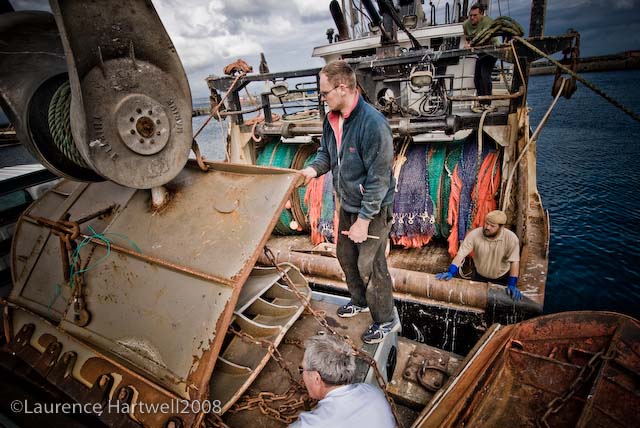Two stories hit the web today - both relate to the exploitation of fish from big foreign vessels. The first looks at an unusual offer from the Russian government to buy in a legal fishing opportunity off the coast of Senegal, while the other reports on foreign vessels making a mockery of local Goan fishing laws - sound familiar? - some things are slow to change it seems!
The Russian government has expressed interest in undertaking big-scale fishing in the waters of several African countries in exchange for free university scholarships.
The Senegalese News Agency, quoted the Russian embassy, said the Russians, apart from giving the scholarships, would also provide vehicles, construction material and office equipment to selected African countries.
The targeted countries are Morocco, Mauritania, Senegal, Guinea-Bissau and Namibia.
The Association of Russian Fishermen currently operating in several West African countries was quoted as saying that the agreement would help them to “optimise” their catch.
The association reportedly seeks to attain 400,000 tonnes of fish - mainly sardines and mackerel - and in turn hand over $160 million to the African countries.
The Russian offer comes at a time when many West African countries and particularly Senegal, are pushing out foreign fishing companies which have been flaunting fisheries regulations over the years.
Early this year, the international environmental watchdog Greenpeace disclosed that 44 giant Russian trawlers were massively exploiting fish resources within Senegal’s maritime territory and called for an immediate end to the practice.
The watchdog explained that the vessels had each the capacity of harvesting about 250 tonnes of fish per day and were “dangerously threatening to deplete the fisheries resources” in Senegalese waters.
Insiders said the Senegalese government has been losing over $4 billion annually to illegal fishing.
Sadly, in this story it seems the directorate of fishing is either complicit or unable or unwilling to do anything about illegal fishing!
TEAM HERALD
teamherald@herald-goa.com
PANJIM: Local fishermen on Monday accosted six trawlers from Karnataka which were found allegedly fishing in Goan territorial waters, even as the huge catch from these boats was being auctioned till late night by the Directorate of Fisheries.
Four of the trawlers were found off the Panjim coast, while two were caught off Vasco. Three of the trawlers were found berthed at the Malim jetty across Panjim late in the evening.
An angry sounding Chairman of Mandovi Fisheries, Menino Afonso, said, “We sailed one hour from Panjim before accosting four of the trawlers fishing in Goan waters. These are having 350 hp engines, more powerful than our boats which run on 140 hp engines. This is illegal.”
Afonso maintained each trawler had caught plenty of fish and the same was being auctioned by the Directorate of Fisheries.
Director of Fisheries Nandkishor Verlekar remained present at the Malim Jetty till late night and was unavailable for a clear comment from his cell phone due to the auctioning chaos in the background.
The Chairman of the Mandovi Fisheries said 15 days ago they had written to the Fisheries Department to station two officers to check outside trawlers fishing in Goan waters, but nothing was done in this regard.
“While we have been given white colour code for our boats, these trawlers from outside don’t follow the same protocol. We also found out that none of the fishermen had identity cards. It looks like all the rules are for Goan fishermen only,” Afonso said while ridiculing conditions imposed on Goan fishermen.
“If fishermen from Karnataka and Tamil Nadu cast their nets in our waters how are we supposed to earn our livelihood? We will have to dock our boats and go home,” he said.
Mandovi Fisheries and other organizations of the boat owners have now called upon the authorities to pass a stern message to the Karnataka Government about their trawlers fishing here. They have threatened to block the Mandovi channel by docking their boats in the middle till the Government takes note of their grievances and takes firm steps to check the menace.
Afonso said they have given a complaint to the Directorate of Fisheries and are waiting to see what action they will be taking against these trawlers.
Story courtesy of the Goan Herald online.













